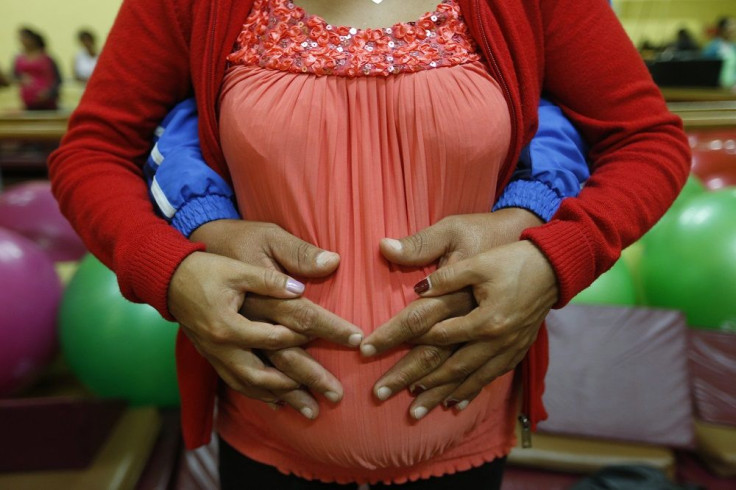Hormone Therapy Allows Woman Who Was Born Genetically A Man To Grow Womb & Give Birth To Twins

Because Hayley Haynes was without female reproductive organs, she was devastated when told by doctors when she was 19 that genetically, she is male even if she has the physical features of a woman.
However, technological advances have allowed 28-year-old Haynes not only to grow a womb, with the help of hormone therapy, but she even bore twins, Avery and Darcey, reports Mirror.
She didn’t have a womb, fallopian tubes or ovaries. Haynes went through in vitro fertilisation. The first sign that there was something wrong with her body was that at 19, Haynes still didn’t have menstruation.
Several tests found that she was born with XY chromosomes, which makes her genetically a male. Her condition is called androgen sensitivity syndrome in which she lacks reproductive organs.
Haynes share her frustrations with her friend Sam, her buddy since they were 16, who eventually became her husband.
An expert at the Royal Derby Hospital discovered through a scan that Haynes has a very small womb, which was not seen in previous scans.
“It was only a few millimetres, but it was a start. He was optimistic it would grow. I still couldn’t conceive naturally but I could have the option of IVF,” Mirror quotes Haynes.
She took hormone tablets that gave her the correct levels of progesterone and oestrogen, which while providing an environment for her tiny womb to grow also stopped her osteoporosis.
By 2011, her womb was ready, but the local NHS trust refused to pay for free IVF despite the guidelines allowing it.
But it didn’t deter the couple who flew in April to Cyprus and spent 10,500 pounds for IVF treatment and their plane tickets. Although it had eaten over 50 percent of their savings, they took a shot amid slim chances since of 13 eggs harvested, only two were viable. Haynes then spent 10 days resting after the two eggs were implanted, which gave her a 60 percent chance of pregnancy.
On her sixth week of pregnancy, a scan showed she was carrying non-identical twins.
“I freaked out, but I was over the moon at the same time. I had the chance to have a complete family … I felt numb with excitement. It was two for the price of one,” Haynes shares.
She gave birth on Dec 24 to two premature girls, Avery weighing 5 lbs and 3 oz, and Darcey weighing 4 lbs and 6 oz.
To contact the writer, email: v.hernandez@ibtimes.com.au





















